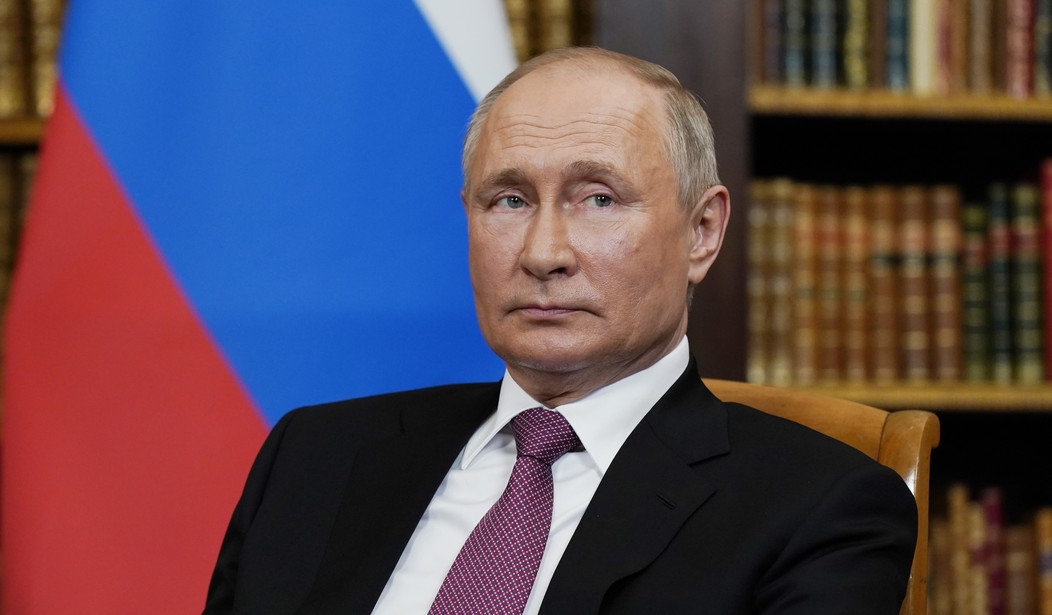In late April, after amassing 40,000 troops on the border of eastern Ukraine and another 40,000 in the disputed Crimean peninsula, Russia removed most of its forces and walked back its naval presence in some areas of the surrounding Black Sea where it concentrated.
Many Western commentators read this as ‘saber rattling,’ a popular phrase in the press, on behalf of Putin to remind a new U.S. administration of Russia’s strength, part of the routine cycle of provocation and de-escalation Putin uses to conduct diplomacy. The conventional thinking is that these patterns tend to ‘flare up,’ another popular phrase, but that in the end there’s little change in the broader strategic picture. Similarly, we are to understand Russia’s naval aggression in the last 10 days against Dutch, British, and other vessels as a response to NATO drills in the region that kicked off on Monday.
Media coverage in the U.S. tends to echo that sort of milquetoast tone, and one can be forgiven for thinking these sorts of details are only for dedicated foreign policy adherents or worth only a few minutes at the end of a newscast. But this conventional viewpoint fails us in three important ways, and that failure obscures a broader picture of Russian aggression.
First, it disregards the cumulative impact of Western powers acceptance of these provocations with little effective response. Temporary ejections of diplomatic personnel and even biting sanctions do not alter the long-term trajectory of Russian policy. Russia has brought political assassination back to the capitals of Europe, directly attacked the democratic institutions of those very countries, and engaged in or allowed precedent-setting cyberattacks with effects that were well beyond cyber.
Recommended
Secondly, we are underestimating the extent of Russian aggression in these waters. Russia has de facto annexed the Azov Sea, which connects to the Black Sea, harassing Ukrainian commercial ships operating there in violation of a 2003 treaty agreement and basically every international law that governs naval conduct. Those international laws also guarantee passage of other nations’ crafts – commercial and military – through a critical passage called the Kerch Strait. That strait links the otherwise landlocked Azov Sea to the Black Sea, allowing access to the ports of other neighbors such as Turkey and Georgia, and eventually the Atlantic Ocean.
After the invasion of Ukraine in 2014, Russia announced it also considered Black Sea waters around the Crimean peninsula as its own. If that becomes a functioning reality – if international ships eventually defer to Russian maritime instructions there – Russia will have essentially cut off Ukraine from access to about half of its natural southern sea border. Couple that with Russia’s presence on the eastern land border and Belarus’ movement of military equipment to its southern border with Ukraine, and the strategy of encirclement comes into starker relief.
Here’s why I’m spending so much time on this: lack of deterrence here by the West is cementing Russian control in the Azov Sea. That in turn encourages their illegitimate claims to the waters of the Black Sea surrounding the Crimean peninsula. And that in turn may serve as the springboard for Russian dictates rejecting international freedom of navigation in greater and greater parts of the Black Sea.
We’ve now seen these patterns come to fruition. Once with the blockade around the Crimean peninsula during this Spring’s troop buildup, executed under the thin pretense of major military drills. And then as the blockade ended with an unprecedented announcement that three areas of the Black Sea would be “closed” to certain types of international vessels for six months. So, each of the recent headlines about skirmishes with Western flagged ships comes laden with that existing intent and tension. In particular, false claims about the location of a British vessel very near a Russian base in the Crimean peninsula – dangerously accompanied by Russian location spoofing – are likely meant to deter other countries from transiting through the broader waters Russia now claims as its own.
Third and most importantly, the current consensus ignores the facts-on-the-ground gains that Putin has made over the past 15 years. On pace for an invasion per decade, since 2008 Putin has extended de facto or nominal control over an additional 2.3 million people. In addition to these new subjects acquired via land invasion, Putin is now extending his area of control in the sea. He does so in a mirror of China’s successful expansion of its sphere of influence in the South China Sea and elsewhere.
We have accepted a fractured Ukraine as part of the current global order, and comfort ourselves with the fact that no new large-scale invasion has taken place since 2014. But in historical terms that is barely the blink of an eye. It’s time to replace words like provocation, incursion, and harassment with attack, invasion, and blockade. By the time the rhetoric finally shifts, we’re going to wish we’d acted sooner.
























Join the conversation as a VIP Member